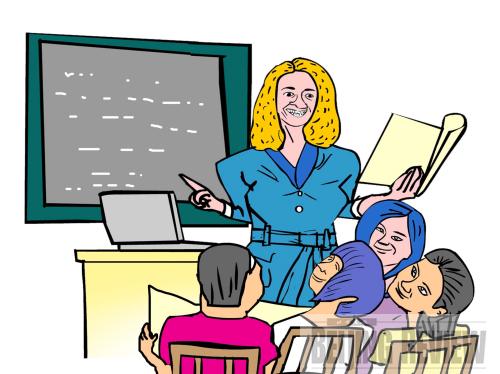|
 |
|
(LI SHIGONG) |
As an educator and linguist, I often feel that foreign teachers of English as a Second Language (ESL) misunderstand their Chinese students. Clearly, throughout history, around the globe, there has always existed the teacher-student relationship. It is an archetypal human phenomenon. But not all archetypes are the same. This is especially true in China, because Western teachers' culture and the Chinese students' culture are alien to each other in many ways. Sadly, this dissimilarity can cause cross-cultural learning situations to become problematic. By identifying four main areas that can cause friction between foreign teachers and their Chinese students, misunderstanding may be avoided. The cultural discrepancies are:
Differences in social positions of teachers and students in the two societies. Broadly, this refers to how students and teachers are recruited. Regarding students: Are the educational institutions elitist or anti-elitist? What is the role of employers regarding education: Do they fund scholarships and grants to stimulate industry? Does the government prescribe the curricula? Who pays the education? Regarding foreign teachers: How much education is necessary for the teaching task they are contracted to do? How well do foreign teachers assimilate into the culture, in order to be happy and to be effective as teachers and foreign guests?
Differences in the appeal, relevance and status of the curriculum for the two societies. This, too, raises many controversial issues. For example, Western language methods now advocate the communicative approach, but Chinese often see no use for this methodology, unless the students intend to go abroad. Furthermore, Western teaching strategies may work more effectively if used by native English-speaking teachers, but that does not imply that these methods will be suitable for non-native English teachers. Many Chinese schools prefer the traditional grammar/text analysis approach. It has been highly venerated in China for centuries.
Differences in profiles of cognitive abilities between the student and foreign teacher populations. Such differences are often vast, because Western and Chinese cultures are so far apart from each other. Our cognitive development hinges upon the demands of our environment, so citizens are good at what their society deems important. In short, cognitive abilities reflect societal patterns. Regarding education, societies process information differently. Bridging the gap between Chinese and Western academic standards requires an increased awareness on both sides, as well as sustained, patient efforts toward understanding.
Differences in expected patterns of interaction between teacher/student. These interchanges are subtle but powerful when foreign teachers with no experience or knowledge of Chinese culture interact with their Chinese students. Cross-cultural learning situations are often filled with premature judgments and confusion on both sides.
In order to deal with these potential conflicts, let's examine a few key cultural criteria: individualism versus collectivism, power hierarchy guidelines, and the uncertainty/avoidance factor. Regarding the first, China is a collectivist society—people are born and belong to intimate, long-lasting groups that exert obligations on their members. In contrast, many Western societies are individualist. They are loosely integrated; people shift, abandon and join new groups very easily. The second, power distance, refers to how a culture defines the extent to which the less powerful persons in a society accept inequality in power and see it as normal. Here again is a very strong difference between Western and Chinese perspectives. Chinese people tolerate inequality differently than Western people. This cultural discrepancy factors into education and how foreign teachers perceive themselves inside the Chinese education system. The third, uncertainty/avoidance, can be defined as a cultural characteristic that displays the extent to which people feel nervous and uncomfortable in unstructured, unclear situations. Foreign teachers often cite this factor, stating that students are timid and unemotional, and that the curricula and syllabi are vague and unstructured.
What can be done to help solve any and all misunderstandings? First and foremost, the more a foreign teacher seeks to understand Chinese culture, the happier he or she will be. Teachers have more power over the learning situation than students; they also have more personal responsibility because of their roles as educators. For this reason, foreign teachers should strive to acquire sensitivity toward Chinese culture, in hopes that cultural interchanges will be positive and successful for everyone involved. One of the best ways foreigners can do that is by studying the Chinese language. This suggestion has many positive benefits for foreign teachers. First, foreign teachers will gain some idea of the linguistic challenges faced by their students, thus creating empathy—both grammatical and cultural. Second, foreigners who learn Chinese are respected. And third, speaking Chinese makes life a whole lot easier: It opens up a world of fascinating relationships with people who are friendly, kind and eager to communicate as much as they can with the outside world.
The author is an American living in China |
